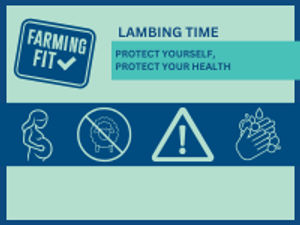The 12 warning signs you may have the new Covid variant NB.1.8.1 as spring booster vaccine roll out gets underway
A new Covid strain has seen a spike in infections and hospitalisations in China and it’s being monitored by WHO
A new Covid variant is ‘under monitoring’ by the World Health Organisation.
NB.1.8.1 was first detected in January 2025 and originates from the Omicron variant.
Covid variant NB.1.8.1 has been detected in 22 countries, leading to a spike in cases and increase of hospitalisations.
A new Covid variant has been blamed for a spike in infections and hospitalisations in China.
It is categorised as NB.1.8.1 and it has been identified in 22 countries. The World Health Organisation (WHO) has confirmed that it is a “ variant under monitoring”.
Covid infections have been on the rise since the Easter bank holiday and May warm weather as more people mix together in the sunshine.
Since the Covid pandemic began in 2020, there have been many different types of variants and subvariants.
NB.1.8.1 is the latest Covid variant after the emergence of LP.8.1., which is now the most dominant variant in the UK.
NHS England reported 1,120 cases up to May 14, up by 12% on the previous week. The percentage of people testing positive for Covid was at 5.5% up to May 16, more than double the 2.32% recorded on January 1 this year.

There were 73 deaths associated with Covid up to May 9, as positive tests continued to rise across the country.
So, what is the new Covid strain NB.1.8.1 and how does it compare to previous strains? Here’s everything you need to know.
What is the new Covid strain NB.1.8.1?
First detected on January 22, 2025, NB.1.8.1 originates from the omicron variant which saw cases spike in 2023.
Despite an increase in cases and hospitalisations in some countries where NB.1.8.1 is widespread, the WHO have revealed that current data does not indicate that it leads to more severe illness than current variants.
WHO have designated it as a “variant under monitoring”, but the overall risk to public health has been posed to be “low”, with current Covid vaccines expected to be effective in protecting vulnerable patients from severe illness.
What are the symptoms of Covid?
There have been many different variants of Covid since the start of the pandemic as the virus continues to evolve, however despite this, symptoms have remained the same.
The NHS explain that symptoms of Covid can include:
a high temperature or shivering
a new, continuous cough
a loss or change to your sense of smell or taste
shortness of breath
fatigue
body aches
a headache
a sore throat
a blocked or runny nose
loss of appetite
diarrhoea
feeling sick or being sick
Who can get a Covid vaccine?
The Covid spring booster programme is currently underway, with jabs being rolled out across the UK until June 17.
To be eligible you must:
be aged 75 or over (including those who will be 75 by June 17, 2025)
be aged six months to 74 years and have a weakened immune system because of a health condition or treatment
live in a care home for older adults
The booster provides protection against different Covid variants and helps reduce the risk of catching or spreading Covid for those who are at risk of becoming very unwell.
Ifti Khan, superintendent pharmacist at Well Pharmacy, urged those eligible to book as soon as possible and get the booster while it is still available.
He said: “Covid will most likely rise coming into the end of spring and into summer as people mix with friends and family more often.
“We know from previous boosters that they are effective in making sure that patients' symptoms are not as severe as they might have been without so I would urge patients to pop into their local Well Pharmacy store and get their jab.
“Patients have just over two weeks as the spring booster programme ends on June 17 so it would be my hope that those who can get a jab, opt to do so before enjoying socialising during summer.”





